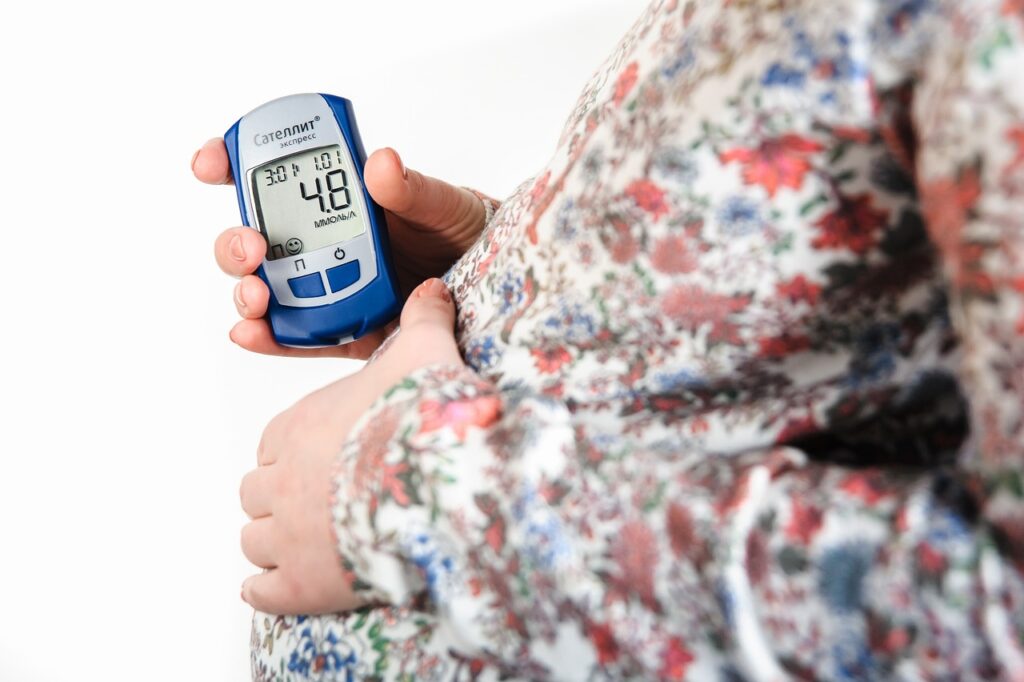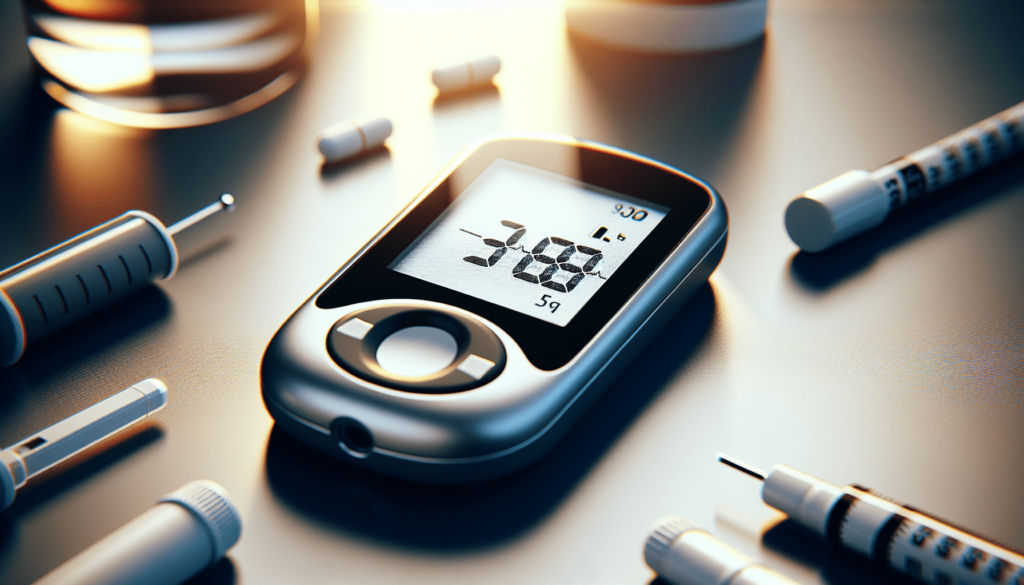Welcome to the quick guide on diabetes! If you’ve ever wondered what exactly diabetes is, you’re in the right place. Diabetes is a chronic condition that affects how your body uses glucose, a type of sugar that serves as a key source of energy. There are different types of diabetes, all of which require careful management to maintain good health. Let’s dive into the basics of diabetes and learn how to keep it under control. What Is Diabetes?
Have you ever wondered what diabetes is and how it affects the body?
Diabetes is a chronic condition that affects millions of people worldwide. It is a disease characterized by high levels of sugar in the blood, often caused by the pancreas not producing enough insulin or the body not responding properly to insulin. In this article, we will explore the different types of diabetes, the causes, symptoms, and treatment options available.

Types of Diabetes
Did you know that there are different types of diabetes?
There are three main types of diabetes: Type 1, Type 2, and gestational diabetes.
Type 1 Diabetes
Type 1 diabetes is an autoimmune disease in which the immune system attacks and destroys insulin-producing cells in the pancreas. This results in little to no insulin production, leading to high levels of glucose in the blood. It often develops in children and young adults, but can occur at any age.
Type 2 Diabetes
Type 2 diabetes is the most common form of diabetes, accounting for around 90% of all cases. It is often linked to lifestyle factors such as obesity, lack of physical activity, and poor diet. In Type 2 diabetes, the body either does not produce enough insulin or becomes resistant to its effects.
Gestational Diabetes
Gestational diabetes occurs during pregnancy and usually goes away after giving birth. However, women who have had gestational diabetes have a higher risk of developing Type 2 diabetes later in life.
Causes of Diabetes
Do you know what causes diabetes?
The exact cause of diabetes is still unknown, but there are several factors that can increase the risk of developing the disease.
- Genetics: Certain genes can make a person more susceptible to diabetes.
- Obesity: Being overweight or obese increases the risk of developing Type 2 diabetes.
- Lack of physical activity: Exercise helps control blood sugar levels and can reduce the risk of developing diabetes.
- Unhealthy diet: Consuming high amounts of processed foods, sugar, and saturated fats can contribute to the development of diabetes.
- Age: The risk of developing diabetes increases with age, especially after the age of 45.
- Ethnicity: Some ethnic groups have a higher risk of diabetes, including African Americans, Hispanics, Native Americans, and Asian Americans.

Symptoms of Diabetes
Do you know the common symptoms of diabetes?
It is important to recognize the signs of diabetes early on to prevent complications.
- Frequent urination: You may find yourself urinating more often than usual, especially at night.
- Increased thirst: Having to drink more water than usual is a common symptom of diabetes.
- Extreme hunger: Despite eating, you may still feel hungry all the time.
- Fatigue: Feeling tired and weak, even after getting enough rest.
- Blurred vision: Diabetes can affect your eyesight, causing blurred vision.
- Slow wound healing: Cuts and sores taking longer to heal than usual.
If you are experiencing any of these symptoms, it is important to see a healthcare provider for a proper diagnosis.
Diagnosing Diabetes
How is diabetes diagnosed?
There are several tests that can be used to diagnose diabetes, including:
- Fasting blood sugar test: This test measures blood sugar levels after an overnight fast.
- Hemoglobin A1c test: This test provides an average of your blood sugar levels over the past 2-3 months.
- Oral glucose tolerance test: This test measures blood sugar levels before and two hours after drinking a sugary drink.
If the results of these tests indicate high blood sugar levels, a healthcare provider will confirm a diagnosis of diabetes and discuss treatment options with you.

Treating Diabetes
How is diabetes treated?
The goal of diabetes treatment is to keep blood sugar levels within a target range to prevent complications. Treatment options may include:
- Medications: Insulin and other medications can help lower blood sugar levels.
- Healthy eating: Following a balanced diet that is low in sugar and saturated fats can help manage diabetes.
- Regular exercise: Physical activity is essential for maintaining a healthy weight and managing blood sugar levels.
- Monitoring blood sugar: Checking blood sugar levels regularly can help you track your progress and make necessary adjustments to your treatment plan.
- Weight management: Losing weight if you are overweight or obese can help improve insulin sensitivity and lower blood sugar levels.
It is important to work closely with your healthcare provider to develop a personalized treatment plan that meets your individual needs.
Complications of Diabetes
What are the complications of diabetes?
If left untreated or poorly managed, diabetes can lead to serious complications. Some of the most common complications of diabetes include:
- Heart disease: Diabetes can increase the risk of heart disease and stroke.
- Kidney damage: Diabetes can damage the kidneys over time, leading to kidney failure.
- Nerve damage: Diabetes can cause neuropathy, a condition that affects the nerves and can lead to pain, numbness, and tingling in the limbs.
- Eye problems: Diabetes can damage the blood vessels in the eyes, leading to vision problems and even blindness.
- Foot problems: Diabetes can cause poor circulation and nerve damage in the feet, increasing the risk of infections and amputations.
It is crucial to manage diabetes effectively to reduce the risk of complications and maintain good overall health.

Preventing Diabetes
Can diabetes be prevented?
While some risk factors for diabetes, such as age and genetics, cannot be changed, there are steps you can take to reduce your risk of developing the disease.
- Maintain a healthy weight: Losing even a small amount of weight can make a big difference in reducing the risk of Type 2 diabetes.
- Eat a balanced diet: Consuming a variety of fruits, vegetables, whole grains, and lean proteins can help control blood sugar levels.
- Exercise regularly: Aim for at least 30 minutes of moderate-intensity exercise most days of the week.
- Limit alcohol consumption: Drinking too much alcohol can raise blood sugar levels and contribute to weight gain.
- Quit smoking: Smoking can increase the risk of diabetes and worsen complications in those who already have the disease.
- Get regular check-ups: Seeing a healthcare provider regularly can help catch diabetes early or prevent it altogether.
By making healthy lifestyle choices and managing risk factors, you can reduce your chances of developing diabetes and lead a longer, healthier life.
Conclusion
In conclusion, diabetes is a chronic condition that affects millions of people worldwide. By understanding the different types of diabetes, its causes, symptoms, and treatment options, you can take control of your health and manage the disease effectively. Remember, early diagnosis and proper management are key to preventing complications and maintaining overall well-being. Stay informed, stay proactive, and most importantly, stay healthy.


